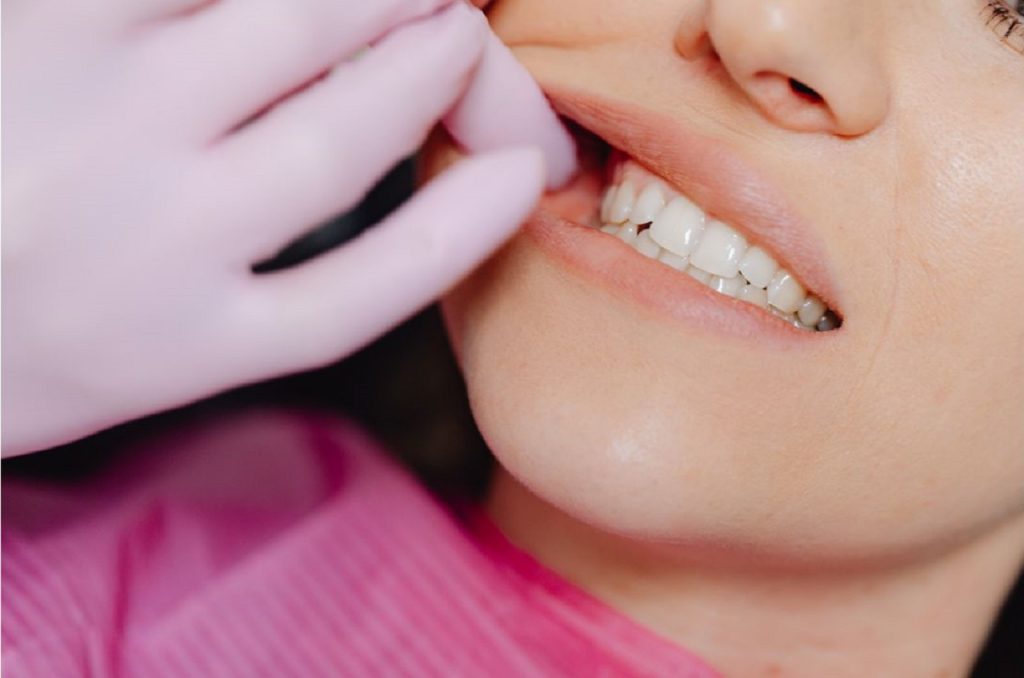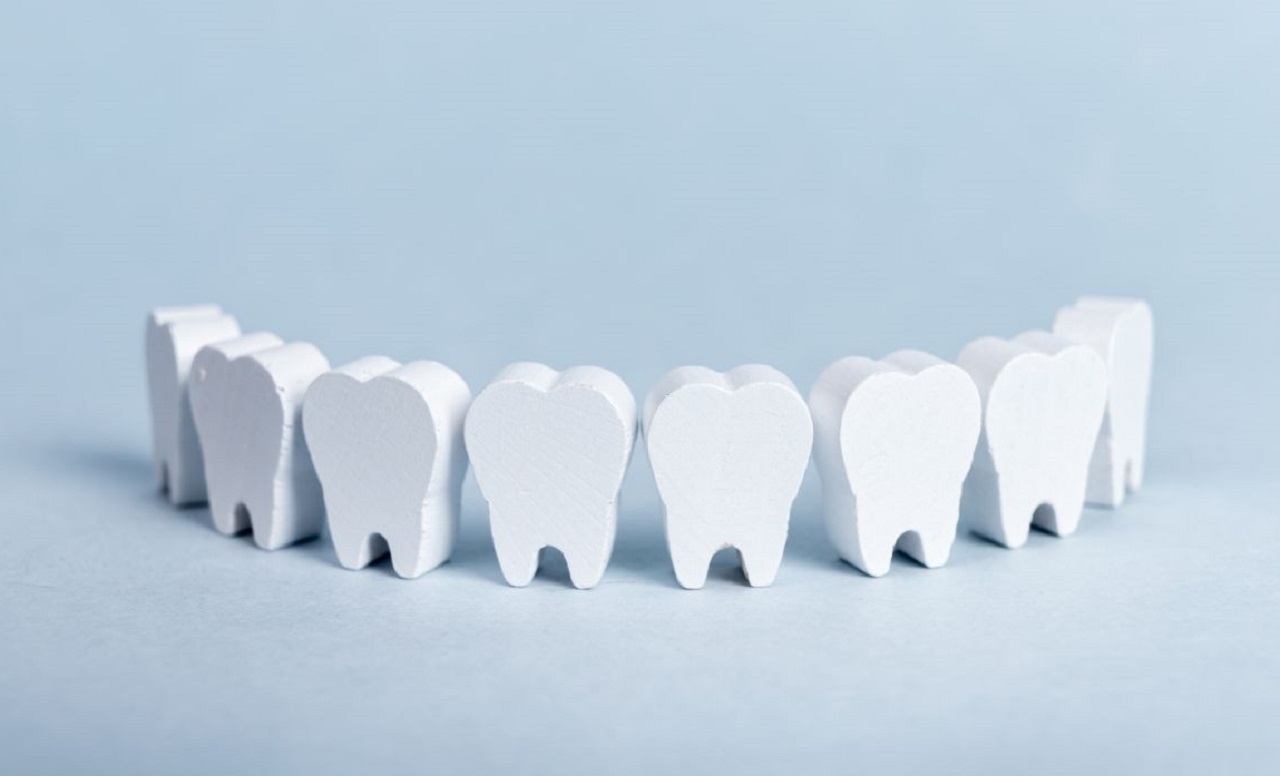Flossing can potentially loosen a crown. Therefore, it is important to floss carefully around the crown to avoid any damage.
Maintaining good oral hygiene is crucial for the long-term success of dental crowns. Dental crowns are designed to be strong and withstand regular chewing forces. However, improper flossing techniques can disturb the crown's fit and lead to loosening. To prevent this, it is recommended to use a gentle up-and-down motion when flossing around the crown and to avoid pulling the floss forcefully.
Regular dental check-ups and professional cleanings can also help to ensure the longevity of the crown. By following these guidelines, you can maintain a healthy mouth and preserve the integrity of your dental crown.
Understanding Dental Crowns
Dental crowns are cap-like structures placed over damaged or weakened teeth to restore their strength and appearance. They are commonly used to protect teeth that have undergone root canal treatment, suffered from severe decay, or experienced traumatic injury. There are several types of dental crowns available, including metal, porcelain-fused-to-metal, all-ceramic, and zirconia crowns.
Each type has its own unique advantages and considerations. Regardless of the material, proper care is crucial to maintain the longevity of dental crowns. Good oral hygiene practices, such as regular brushing and flossing, along with routine dental check-ups, help prevent complications and ensure the longevity of dental crowns.
While flossing is essential for maintaining oral health, it is important to exercise caution when flossing around dental crowns to avoid dislodging or loosening them. By understanding dental crowns and taking proper care, individuals can enjoy the benefits of these restorative treatments for a long time.

The Purpose Of Flossing
Flossing plays a vital role in maintaining oral health by preventing plaque buildup and gum disease. Regular flossing removes food particles and bacteria from between teeth and along the gumline. This helps to prevent the formation of plaque, which can lead to tooth decay and gum inflammation.
Flossing also stimulates the gums, promoting good blood circulation and overall gum health. By removing plaque regularly, flossing reduces the risk of gum disease, which can cause gum recession and tooth loss, and even contribute to systemic health issues. So, while flossing might not directly loosen a crown, it does contribute greatly to a healthy oral hygiene routine.
Make flossing a regular part of your dental care to keep your smile bright and your teeth strong.
Potential Risks Of Flossing With A Crown
Flossing with a crown can have potential risks due to the delicate nature of dental crowns. It is important to avoid excessive force while flossing to prevent any damage to the crown as well as the adjacent teeth. The gentle technique should be applied to maintain the integrity of the crown and promote oral health.
Proper flossing can help remove plaque and debris from hard-to-reach areas, promoting gum health and preventing decay. Regular dental check-ups are also essential to ensure the crown's stability and address any concerns related to flossing or oral hygiene. By following these precautions, you can maintain the longevity of your crown and enjoy good oral health.
Remember to consult your dentist for personalized advice and guidance.
Expert Opinions On Flossing With A Crown
Dental experts share insights on flossing with a crown, highlighting important factors to consider and safe recommendations. Before flossing, it is crucial to take into account certain factors specific to crowns. Dental professionals provide recommendations to ensure safe and effective flossing with a crown.
Adhering to these guidelines can help prevent potential damage and maintain oral health. Expert opinions recommend being cautious and using proper techniques when flossing around a crown. By following their suggestions, individuals can effectively clean their teeth without risking any loosening or damage to the crown.
Dental professionals emphasize the significance of oral hygiene, especially when it involves dental restorations like crowns.
Alternatives To Traditional Flossing With A Crown
Flossing, though important for oral health, can potentially loosen a crown. But there are alternatives to traditional flossing that can be effective for maintaining oral hygiene with a crown. Interdental brushes are one option, as they can clean the spaces between teeth and around the crown.
Water flossers are also useful, as they use a stream of water to remove plaque and debris. However, it is always best to consult with your dentist for personalized advice on the most suitable alternative method for your specific situation.
They can provide guidance on the proper technique and recommend the right tools or products to ensure the health and longevity of your crown.
Final Thoughts On Flossing And Dental Crowns
Flossing is an essential part of maintaining oral hygiene and overall dental health. Regular dental check-ups are also significant. However, it is crucial to balance the importance of flossing with proper care for dental crowns. Many people wonder if flossing can loosen a crown.
While it is unlikely for regular flossing to directly affect the stability of a well-fitted crown, it is essential to use proper technique and a gentle touch while flossing around the crown area. Dentists can provide specific instructions on flossing around dental crowns to ensure their longevity.
Proper oral care, including regular flossing, can help prevent gum disease and decay, benefiting both natural teeth and dental crowns. So, continue flossing regularly and consult your dentist for personalized advice on taking care of your dental crowns to maintain optimal oral health.
Frequently Asked Questions Of Can Flossing Loosen A Crown
Can Flossing Cause A Dental Crown To Become Loose?
Flossing can occasionally dislodge a dental crown if not done correctly or with excessive force.
How Should I Floss Around A Dental Crown?
To safely floss around a dental crown, use a gentle up-and-down motion, being careful not to pull the floss forcefully.
Can Flossing Damage A Loose Dental Crown?
Flossing with a loose dental crown may further loosen or dislodge it. Consult your dentist for proper care.
Is It Safe To Floss Between A Dental Crown And Adjacent Teeth?
Yes, it is safe to floss between a dental crown and adjacent teeth, but use caution to avoid dislodging the crown.
What Should I Do If My Dental Crown Feels Loose?
If your dental crown feels loose, contact your dentist immediately to prevent further damage or potential loss of the crown.
Conclusion
It is crucial to exercise caution when flossing around a dental crown. While flossing can help maintain oral hygiene, improper technique or excessive force can potentially loosen a crown. To avoid this, it is essential to follow the correct flossing method recommended by your dentist and be gentle when cleaning around the crown area.
It is also advisable to consult your dentist for any concerns or questions regarding flossing and its impact on your dental crown. Remember, prevention is key to preserving the durability and longevity of your dental crown. By practicing proper oral hygiene and seeking professional guidance, you can ensure the success and longevity of your crown, keeping your smile bright and healthy for years to come.

